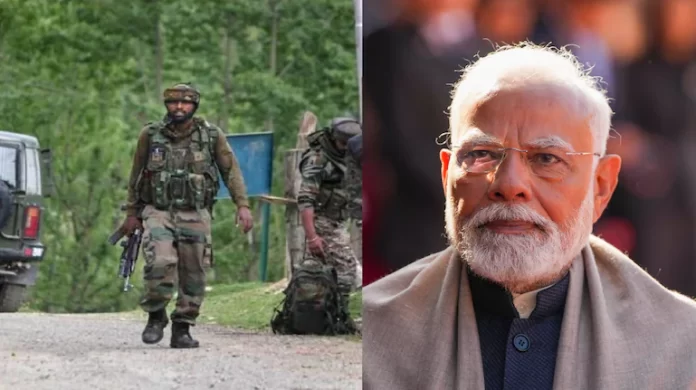Caught between people’s outrage and the risk of another strategic miscalculation
First, it was Pulwama, and now Pahalgam, where Modi’s political spectacles were staged. The first during his second term in office, and the latter in his third. He is well aware that delaying a response to the Pahalgam massacre and engaging in military conflict solely to appease domestic sentiment, without clear objectives, risks strategic failure, escalation into full-scale war, and international condemnation.
His re-election in 2019 for a second term urged him to demonstrate to 1.4 billion Indians that he was willing to test Pakistan’s military preparedness. Consequently, he orchestrated the Pulwama terror attacks to implicate Pakistan. However, the overconfident Prime Minister suffered a setback. And he did not stop there.
“The country today is feeling the absence of Rafale fighter jets, India suffered a big loss”. This was one of Modi’s hawkish remarks following the Pulwama attack. To rally national support, he launched a (false flag) airstrike in Pakistan’s Balakot region. However, Pakistan’s response was swift, and India was taken by surprise, losing two fighter jets. The situation calmed domestically, Modi preserved his image, and proceeded with a $10 billion deal to acquire French Rafale fighter jets.
Now, in his third term as Prime Minister, Modi proudly possesses the most advanced French fighter jets and appears eager to test them in real combat. Consequently, another false flag operation was staged in Pahalgam, Kashmir, where 26 innocent tourists lost their lives.
The brief India-Pakistan conflict in 2019 exposed vulnerabilities in India’s air force, as Pakistan swiftly countered, downing two Indian jets and capturing a pilot. The debacle brought significant domestic criticism for Modi and his inflammatory rhetoric during the conflict. He faced additional opposition from critics who questioned his handling of the aerial engagement with Pakistan. Despite political divisions regarding financial mismanagement in the Rafale deal, Modi remained determined to proceed with the purchase.
PM Modi, now appearing to recognize the complexities involved in managing a response, has taken a few immediate actions that seem more focused on pacifying public outrage than establishing a coherent strategic direction. A retaliatory military action could have been a defining moment for his supporters, but it carries the risk of repeating the 2019 debacle.
An official was quoted as saying, “PM Modi has given complete green signal to armed forces to decide the mode, targets and the timing of India’s response to the Pahalgam massacre”
Nearly two weeks after the Pahalgam attack, the lack of military retaliation is starting to damage his reputation. Questions are being raised both domestically and internationally regarding his inaction and silence. In 2019, Modi had blamed the absence of Rafale jets for India’s setbacks on the battlefield. Now, after spending $10 billion of taxpayers’ money on three squadrons, his constituents, including the armed forces, are questioning why he hesitates to deploy his new fighter jets to escalate pressure on Pakistan.
Leadership is not solely about aspirations; it is about their realization. One cannot always attain what they desire, but true success lies in the lessons learned from past failures. In the practical world, there is no such thing as instant success—what appears to be quick achievement often results from years of effort. Therefore, Modi should have carefully considered the potential consequences before embarking on another endeavor that could turn out worse than his previous one. Leadership requires making strategic decisions that minimize risks while maximizing long-term benefits for the nation. Rash actions rarely serve national interests and often lead to disillusionment.
India has made remarkable progress under Modi’s leadership over the past decade, establishing itself as a rapidly developing economy. It is now on track to become the world’s third-largest economy by 2030.
If Modi still chooses to pursue a military strike against Pakistan, can his Rafale jets truly tilt the balance in India’s favor? And if they do, the inevitable retaliation from Pakistan will likely mirror the events of February 2019. If Modi aims to leave behind a meaningful legacy after securing three consecutive terms, he must reflect on his decisions. It is a delicate balancing act, but one that could preserve his dignity and safeguard national interests.
War is neither brief; it is bound to create a havoc. As the three-time Prime Minister of the world’s largest democracy, Mr. Modi must recognize that wise decision-making in moments of crisis defines the true character of leadership. Would he like to be remembered as a warmonger or a statesman with foresight?




